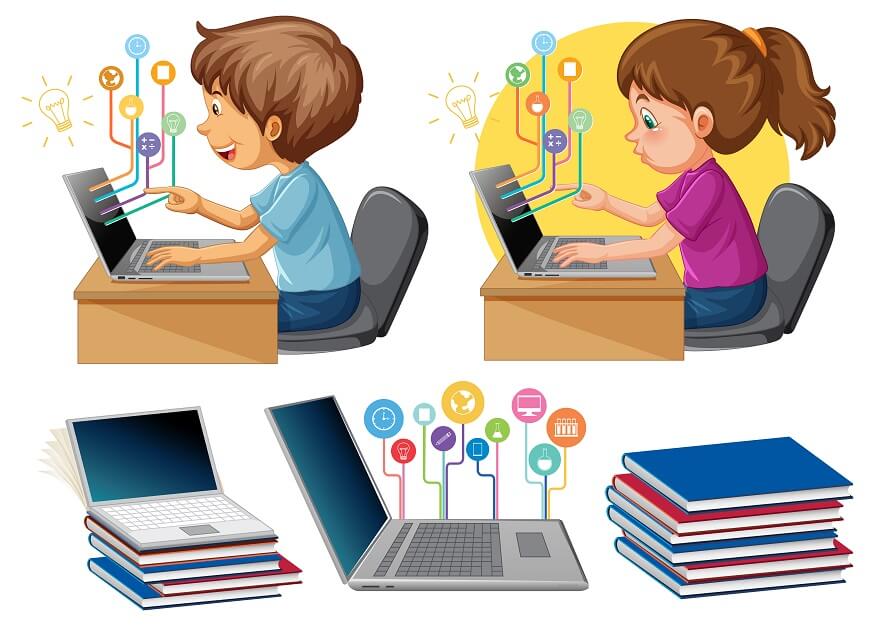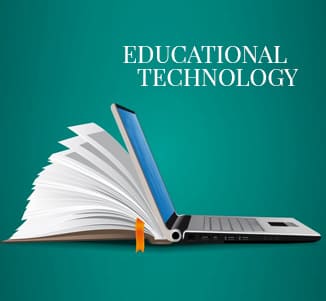Crucial Resources for Institutions to Improve Their Strategy to Technology Education And Learning
As organizations aim to improve their modern technology education and learning structures, the identification and implementation of essential resources come to be vital. Ingenious curriculum styles that integrate technology, along with efficient on-line learning systems, can substantially broaden instructional accessibility and engagement. In addition, expert development chances for teachers play an essential duty in ensuring they are equipped with current methodologies. Yet, the conversation does not finish there; the prospective impact of joint tools and area partnerships warrants better expedition. What might these elements collectively add to a more durable modern technology education landscape?
Innovative Curriculum Styles
In today's rapidly developing technological landscape, teachers are significantly identifying the demand for ingenious educational program styles that efficiently integrate technology into learning experiences. This assimilation is important for preparing pupils for a future where digital proficiency is extremely important. Innovative educational program layouts incorporate numerous instructional techniques, guaranteeing that technology acts as a device for enhancing interaction and helping with deeper knowing.
One efficient approach is project-based understanding (PBL), where pupils take part in real-world issues, utilizing technology to study, collaborate, and offer their searchings for. This method not only cultivates critical thinking however also encourages the development of soft abilities such as synergy and communication. Furthermore, flexible learning modern technologies can personalize the educational experience, dealing with individual discovering styles and paces.
In addition, interdisciplinary strategies that mix topics, such as incorporating scientific research and modern technology with the arts, aid produce a more all natural discovering atmosphere. This fosters creativity and development, equipping trainees with the skills required to flourish in a complex, interconnected globe. Eventually, cutting-edge educational program layouts are essential for growing a generation of learners who are not only competent in modern technology yet are additionally experienced problem solvers and important thinkers.
Online Discovering Platforms
Many teachers are turning to on-line learning systems as essential tools for boosting educational access and interaction. These platforms help with a hybrid discovering atmosphere that fits diverse knowing styles and rates, making education and learning much more comprehensive. They provide a series of sources, consisting of video clip lectures, interactive simulations, and conversation forums, making it possible for pupils to access content from anywhere at any kind of time.
Popular on-line discovering platforms, such as Coursera, edX, and Moodle, offer establishments with the framework required to supply premium technology education and learning. These systems can be personalized to straighten with certain curriculum goals and instructional strategies, ensuring that establishments can preserve their instructional standards while leveraging digital sources.
In addition, on-line learning systems sustain partnership amongst pupils and instructors, promoting a sense of area and shared discovering experiences. Advanced analytics tools offered on these platforms permit educators to track pupil progress and engagement, promoting prompt interventions when needed.
Specialist Development Opportunities
Constant specialist development is essential for educators looking for to stay abreast of arising modern technologies and instructional methods in a swiftly advancing instructional landscape (Insurance). To effectively integrate innovation into the class, educators have to proactively seek opportunities that boost their skills and understanding
Establishments need to focus on providing programs, seminars, and workshops concentrated on the most recent technical innovations and training methodologies. These programs can attend to numerous elements of modern technology education, consisting of coding, electronic literacy, and the usage of academic software application. In addition, partnering with regional colleges and technology organizations can give teachers accessibility to specialized training and sources.
Online professional advancement systems additionally provide adaptability, allowing educators to engage in self-paced learning. Webinars and online meetings can facilitate knowledge sharing among educators worldwide, promoting a global perspective on innovation combination.
In addition, mentorship programs can attach knowledgeable instructors with those brand-new to technology, advertising collective knowing and support. By producing a society of continual understanding, institutions can empower educators to accept cutting-edge training approaches, ultimately enhancing pupil engagement and success in technology education. Buying expert development not only advantages instructors but also substantially enriches the finding out experience for students.
Collective Tools and Resources
Reliable assimilation of innovation Insurance in education and learning also counts on making use of joint devices and resources that facilitate communication and teamwork amongst instructors and students. Such devices improve interaction and promote a culture of cooperation, crucial for modern learning atmospheres. Systems like Google Work Space and Microsoft Teams enable real-time document sharing, project monitoring, and smooth interaction, enabling teams to collaborate properly no matter geographical barriers.
In addition, finding out management systems (LMS) such as Canvas and Moodle supply structured settings for cooperation, where teachers can develop online forums, assign group jobs, and help with discussions. These platforms not just enhance instructional shipment yet likewise encourage peer-to-peer interaction, essential for constructing important reasoning and problem-solving skills.
Moreover, devices like Padlet and Trello can be employed to visualize concepts and take care of jobs collaboratively, enhancing project-based learning experiences. By incorporating these collective sources, organizations equip both pupils and instructors to add proactively to their discovering trips. Inevitably, the reliable use of collective tools not only enhances the academic experience yet likewise prepares trainees to thrive in an increasingly interconnected world.
Area and Sector Collaborations
Community and industry partnerships play an essential role in boosting modern technology education and learning by linking the space in between academic expertise and functional application. These collaborations supply students with real-world experiences, allowing them to use class ideas to actual difficulties encountered by organizations. By engaging with regional organizations and community companies, instructional institutions can develop vibrant understanding environments that cultivate innovation and ability development.

Additionally, these alliances can cause resource sharing, where institutions gain from market modern technology, knowledge, and financing. Such support not just improves educational offerings however also assists to grow a labor force that is well-prepared for the difficulties of the modern-day economic situation. Ultimately, the synergy created via neighborhood and market partnerships is essential for fostering a culture of continuous understanding and adaptation in modern technology education, making sure that establishments stay responsive to evolving technological landscapes.
Conclusion

One reliable technique is project-based understanding (PBL), where pupils involve in real-world troubles, using modern technology to research, work together, and present their findings. Additionally, adaptive learning technologies can individualize the instructional experience, catering to individual discovering designs and paces.
In addition, mentorship programs can link knowledgeable teachers with those new to modern technology, advertising collective discovering and support. By creating a society of continual discovering, establishments can empower instructors to embrace cutting-edge mentor methods, inevitably boosting pupil involvement and success in innovation education. Eventually, the synergy produced through area and industry collaborations is necessary for fostering a society of continuous learning and adjustment in modern technology education and learning, making certain that organizations stay responsive to evolving technological landscapes.